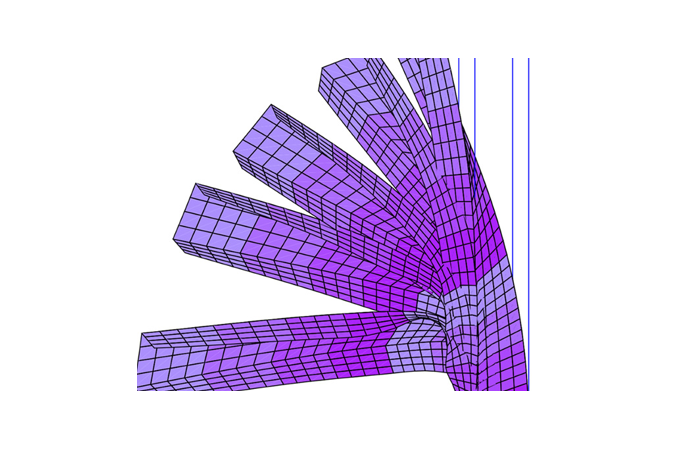
Advanced analysis of thin-walled members [NI-SERV-2020-35]
Advanced thin-walled beam finite elements can be used to efficiently model and analyse the behaviour of beam-like members subjected to cross-section deformation.
Service/Expertise Overview
Our services comprise the structural analysis of slender and thin-walled beam-like structures undergoing complex geometrically non-linear phenomena, including cross-section distortion. This is achieved using advanced beam finite elements, which include cross-section deformation and can be combined with standard shell elements. The available services comprise the calculation of (i) cross-section properties for arbitrary shapes, (ii) bifurcation loads, (iii) natural frequencies, and (iv) non-linear large displacement load-displacement paths.
The most remarkable feature of our beam finite elements lies in the fact that the cross-section kinematics is described using a set of hierarchic and structurally meaningful cross-section deformation modes (e.g. global, local, distortional) that enable acquiring an in-depth and unique insight into the mechanics of the problem under consideration. Moreover, extremely accurate solutions can be obtained with just a few cross-section deformation modes (hence just a few degrees-of-freedom) and, in some cases, analytical formulae can be derived, which have a significant practical interest.
A wide range of material behaviours can be modelled, including steel plasticity and concrete cracking, crushing & creep.
Competitive advantages
Our own finite elements are used, which are not available elsewhere.
Applications
Our services are of particularly interest to the steel and steel-concrete construction industry, namely for Engineers developing new products (e.g. cold-formed steel products) and/or designing structures. Software companies working in the construction industry can be also interested, as we already developed specific software for a foreign company. However, anyone interested in modelling thin-walled beam-like elements could be interested in our services.
Research centre
CERIS and the Civil Engineering Department


